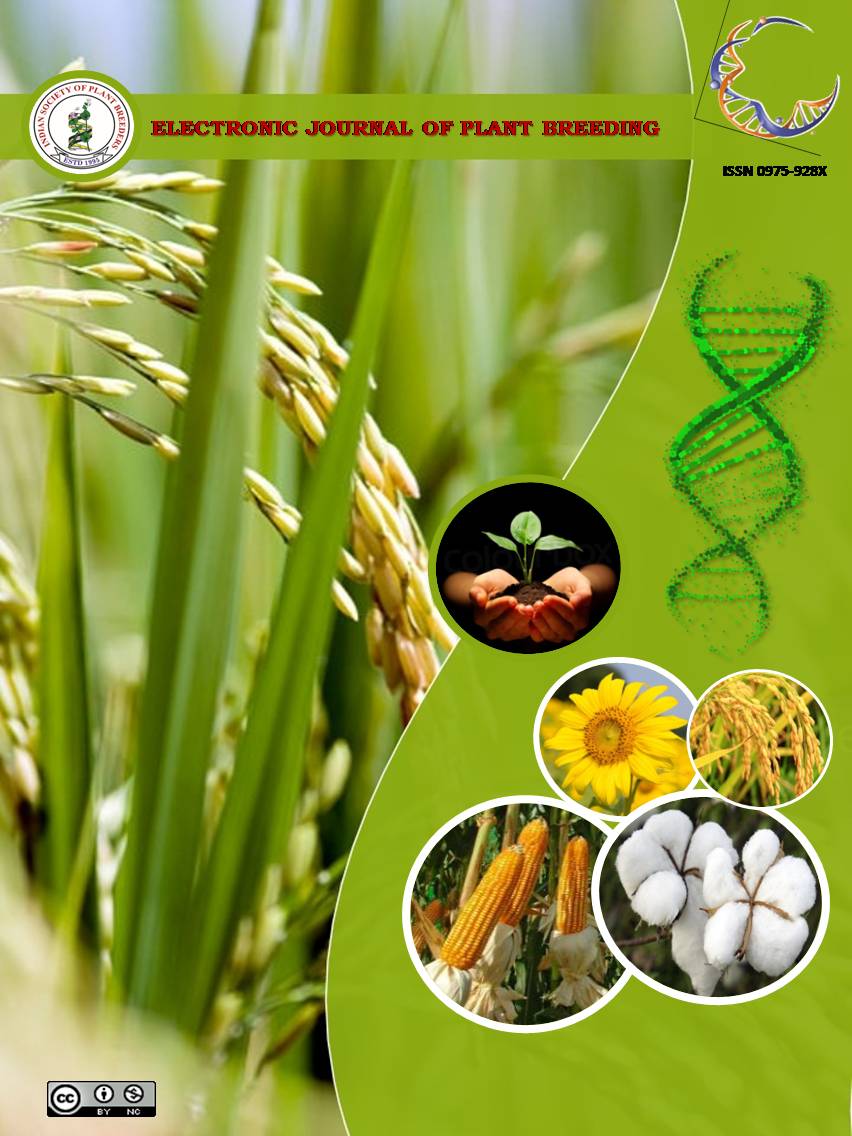Heterotic hybrid frequency in relation to combining ability and parental genetic divergence in maize
Abstract
Being a highly cross pollinated crop, heterotic hybrid development is the immediate cultivar option in maize. The F1’s developed from the heterotic pools not only serve as hybrid cultivar but also helps in isolation of good inbred lines. Genetic diversity and combining ability of parents are the commonly used criteria for heterotic hybrid development. In this context, an investigation was carried out at College of Agriculture, V. C. Farm, Mandya, India, to test the predictability of heterotic hybrid frequency based on parental gca effects and genetic diversity in maize. The 108 F1’s developed by crossing 27 inbred lines and four testers were evaluated along with their parents for six morpho-metric traits. The overall gca status of parents and sca and heterotic status of hybrids for six characters were determined. Based on genetic divergence and gca status of parents, the hybrids were grouped into different classes. The hybrids involving intermediate genetic divergence and/or contrasting for overall gca status were more frequently heterotic than those involving extreme genetic divergence and comparable gca status. Thus, there is a limit to parental genetic divergence for the occurrence of heterosis. It is hence, desirable to involve parents with contrasting gca effects and intermediate genetic divergence to recover higher frequencies of heterotic hybrids for economic traits in maize.

It is certified that:
- The corresponding author is fully responsible for any disputes arising due to the publication of his/her manuscript.
- The article has been seen by all the authors who are satisfied with its form and content.
- The sequence of names of authors in the by-line is as per their relative contribution to this experiment, giving due credit to all scientists who made notable contribution to it.
- All the authors fully understand that inclusion of any other co-authors or exclusion of any co-authors is not possible once the article has been submitted to the journal.
- The corresponding author takes full responsibility for this article.
- The address of the organization where the research was conducted is given.
- The article is exclusive for this journal, and the results reported here have not been sent (and will not be sent during its consideration by this journal) for publication in any other journal.
- Authors agree to abide by the objective comments of referees and do agree to modify the article into a short note as per the recommendation, for publication in the Electronic Journal of Plant Breeding.
- If published in Electronic Journal of Plant Breeding, the copyright of this article would vest with the Indian Society of Plant Breeders, who will have the right to enter into any agreement with any organization in India or abroad engaged in reprography, photocopying, storage and dissemination of information contained in it, and neither we nor our legal heirs will have any claims on royalty.


